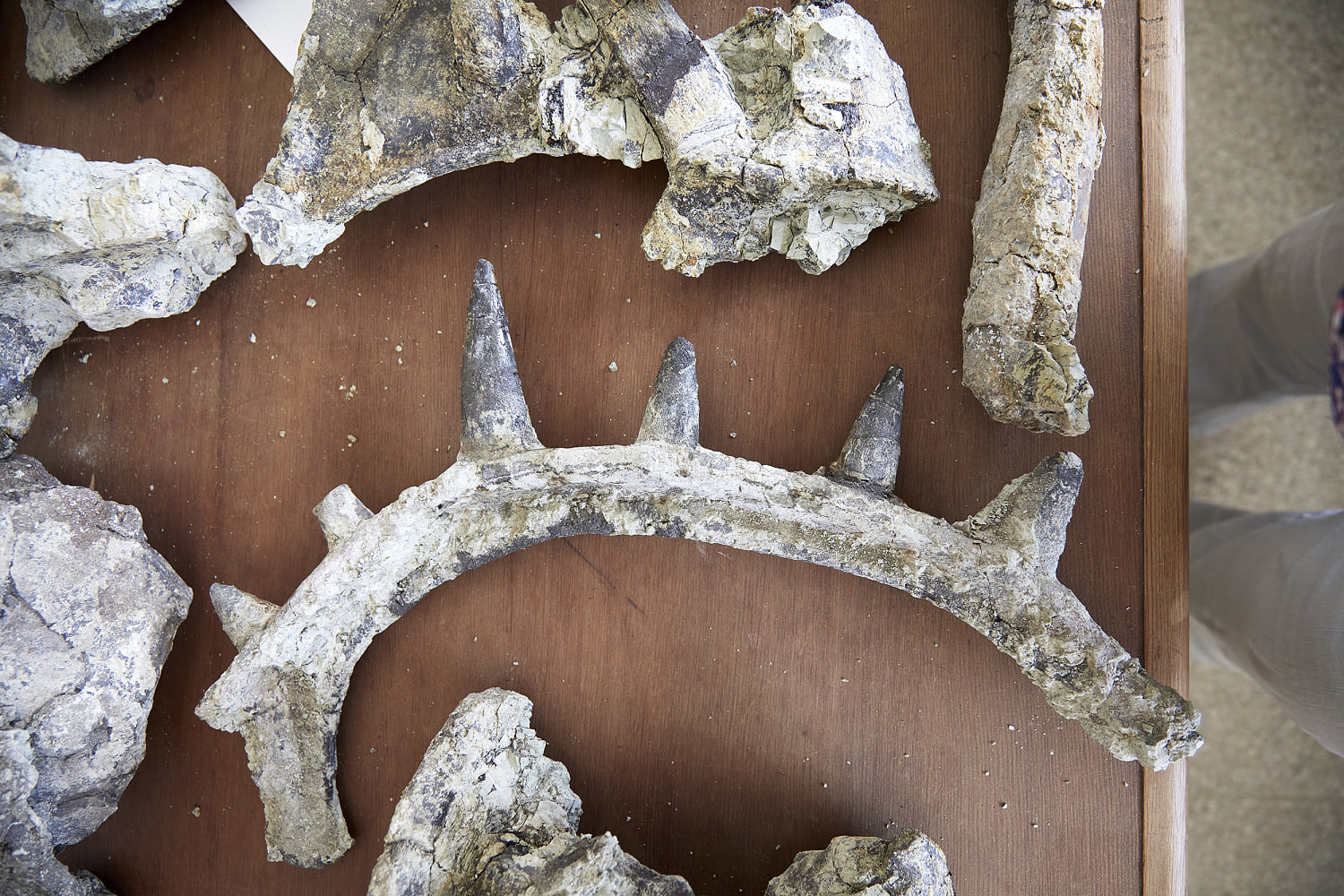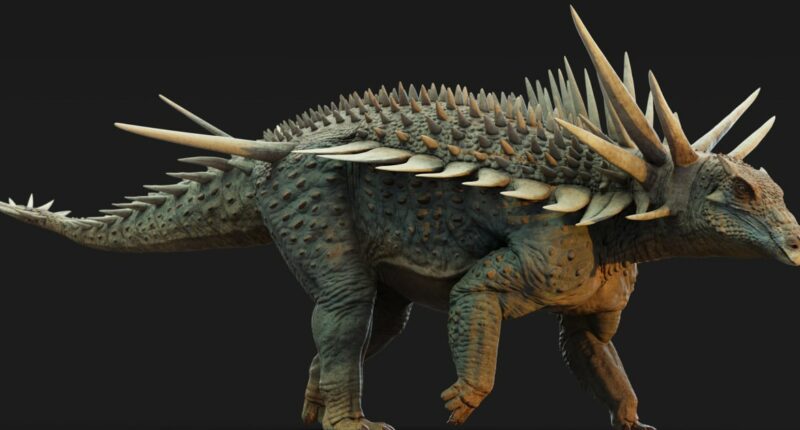Share this @internewscast.com

“We were astounded by how bizarre and different it was from other dinosaurs, or any known creature, extinct or extant,” said Richard Butler, co-lead of the project and a paleontologist at the University of Birmingham in England.
The chance to see and study the Spicomellus fossils was “spine-tingling,” said Butler.
It wasn’t just those involved in the project who were enthused.
“This dinosaur is genuinely one of the most peculiar I’ve ever encountered,” stated Steve Brusatte, a vertebrate paleontologist at the University of Edinburgh who wasn’t part of the research team.
“It features spiky bones emerging all over its body, resembling a reptilian porcupine,” he mentioned on Thursday. “In the Jurassic era, any carnivorous dinosaur would have avoided this creature at all costs.”
Brusatte further remarked: “It exemplifies the many new discoveries that await. Prior to these fossils, we had no idea such an extraordinary animal had ever existed.”
Maidment, who also led the study, commented that this find indicates extensive research is still required in Africa, with places like Morocco being a rich but underexplored haven for dinosaur findings.
“It is wildly undersampled compared to the other continents,” said Maidment, from London’s National History Museum.
Maidment said that the Spicomellus project, which actually began in 2018, faced several hurdles along the way, including the Covid-19 pandemic.
The team from the U.K. was about to travel to collaborate with Moroccan scientists on the project when British Prime Minister Boris Johnson announced a lockdown, pushing back their plans until 2022.
Despite those challenges, the research project has proved to be a major step forward for science in Morocco.
“This study is helping to drive forward Moroccan science. We’ve never seen dinosaurs like this before, and there’s still a lot more this region has to offer,” said Driss Ouarhache, who led the Moroccan team.












